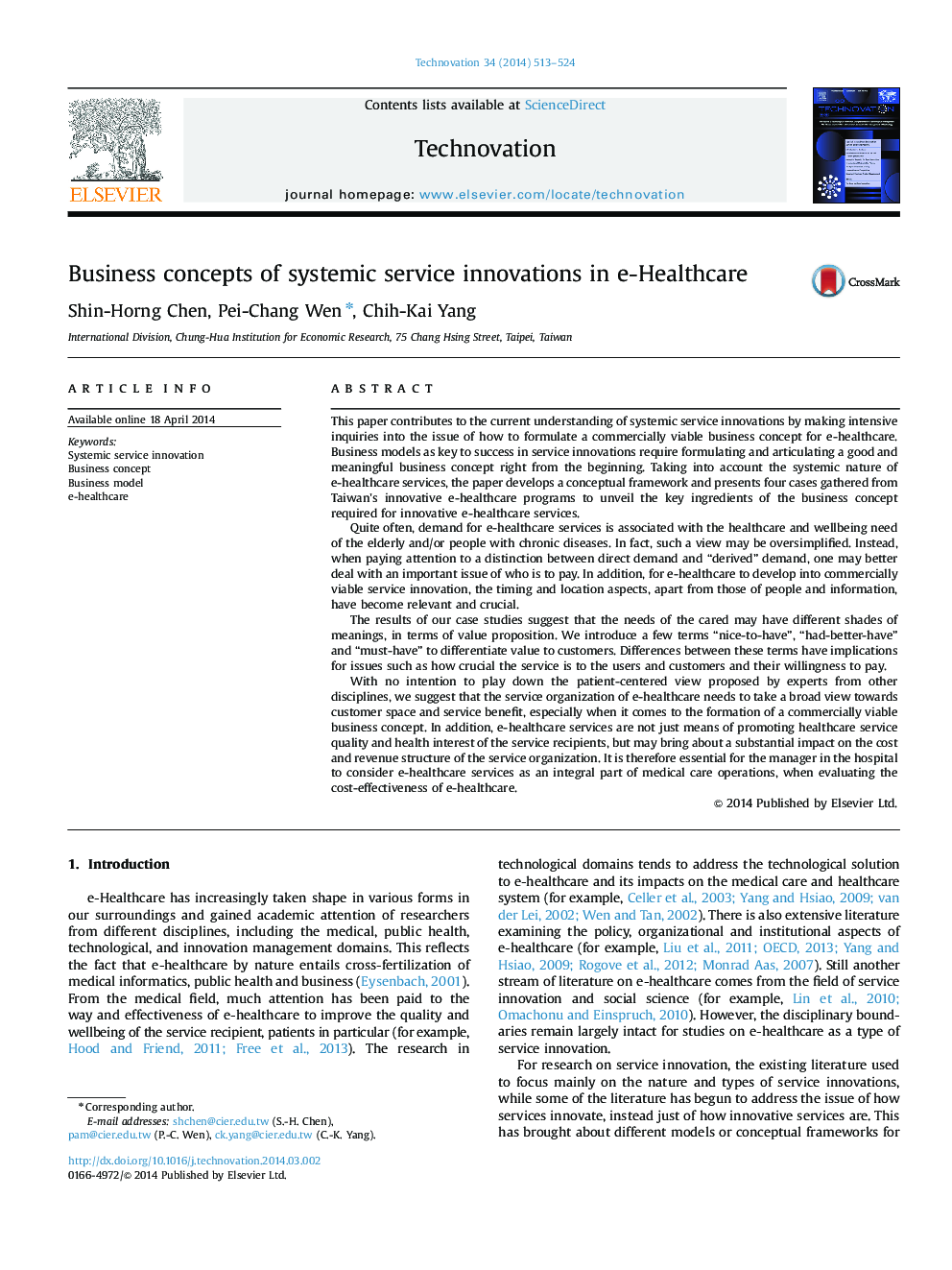| Article ID | Journal | Published Year | Pages | File Type |
|---|---|---|---|---|
| 1021948 | Technovation | 2014 | 12 Pages |
•We propose a conceptual framework to examine business concept for e-healthcare.•e-Healthcare encompasses a broader customer space than the cared to form a commercially viable business concept.•The timing and location aspects have become relevant and crucial to e-healthcare services.•Service benefits means more than value propositions in designing business concept for e-healthcare.
This paper contributes to the current understanding of systemic service innovations by making intensive inquiries into the issue of how to formulate a commercially viable business concept for e-healthcare. Business models as key to success in service innovations require formulating and articulating a good and meaningful business concept right from the beginning. Taking into account the systemic nature of e-healthcare services, the paper develops a conceptual framework and presents four cases gathered from Taiwan׳s innovative e-healthcare programs to unveil the key ingredients of the business concept required for innovative e-healthcare services.Quite often, demand for e-healthcare services is associated with the healthcare and wellbeing need of the elderly and/or people with chronic diseases. In fact, such a view may be oversimplified. Instead, when paying attention to a distinction between direct demand and “derived” demand, one may better deal with an important issue of who is to pay. In addition, for e-healthcare to develop into commercially viable service innovation, the timing and location aspects, apart from those of people and information, have become relevant and crucial.The results of our case studies suggest that the needs of the cared may have different shades of meanings, in terms of value proposition. We introduce a few terms “nice-to-have”, “had-better-have” and “must-have” to differentiate value to customers. Differences between these terms have implications for issues such as how crucial the service is to the users and customers and their willingness to pay.With no intention to play down the patient-centered view proposed by experts from other disciplines, we suggest that the service organization of e-healthcare needs to take a broad view towards customer space and service benefit, especially when it comes to the formation of a commercially viable business concept. In addition, e-healthcare services are not just means of promoting healthcare service quality and health interest of the service recipients, but may bring about a substantial impact on the cost and revenue structure of the service organization. It is therefore essential for the manager in the hospital to consider e-healthcare services as an integral part of medical care operations, when evaluating the cost-effectiveness of e-healthcare.
